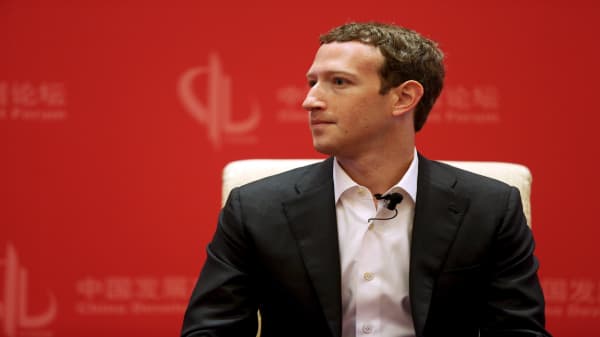Mark Zuckerberg’s obsession with an ancient Roman emperor offers insight into how he runs Facebook
Michelle Castillo | CNBC
- The Facebook CEO’s idealization of the ancient Roman emperor, who he says made difficult choices to achieve the greater good, may explain some of his decisions.
- The company pursued growth aggressively, including expanding into foreign nations and giving access to outside developers without putting checks and balances in place.
Mark Zuckerberg is too ambitious to let things go pear-shaped, says The New Yorker’s Osnos
Facebook CEO Mark Zuckerberg’s love for ancient Roman emperor Augustus Caesar offers some insights into how he views being a leader.
“You have all these good and bad and complex figures,” Zuckerberg said during an interview with The New Yorker. “I think Augustus is one of the most fascinating. Basically, through a really harsh approach, he established two hundred years of world peace.”
Like Zuckerberg, Augustus assumed power of his empire at a young age. To attain world peace, Augustus had to make choices “that didn’t come for free, and he had to do certain things,” Zuckerberg added. But in the end, the Facebook executive believes the emperor was able to achieve a significant period of peace, something that “feels unattainable.”
The profile notes that Augustus eliminated political opponents and may have arranged the execution of his grandson.
Zuckerberg’s interest in ancient Rome began in high school and has continued throughout his life, he said. In addition to naming his second daughter August, he spent his 2012 honeymoon in Rome.
“My wife was making fun of me, saying she thought there were three people on the honeymoon: me, her, and Augustus,” he said. “All the photos were different sculptures of Augustus.”
The Augustus mindset could be one reason why Zuckerberg reportedly led his company to pursue growth at all costs, and used to end some meetings by half-jokingly shouting “Domination!,” the profile says.
Facebook in talks with banks to develop partnerships
When Facebook stopped growing at 50 million users in 2007, the executive created a “Growth Team” to focus on getting more users, The New Yorker reported. Solutions included adding more languages to reach out to new territories, as well as asking the Federal Election Commission to exempt the platform from disclosing political ad funding sources in 2011. It also opened its platform to outside developers before putting safeguards in place to make sure user data wasn’t misused, according to former operations manager Sandy Parakilas.
Many of these growth strategies have led to Facebook’s current issues, including how foreign nations were allowed to sway U.S. elections with manipulative content. Facebook’s former security chief recently told CNN he believes the company is not better prepared to deal with these forces than they were during the 2016 election.
___
http://www.cnbc.com/2018/09/10/facebook-ceo-mark-zuckerbergs-love-for-augustus-may-give-insight.html


